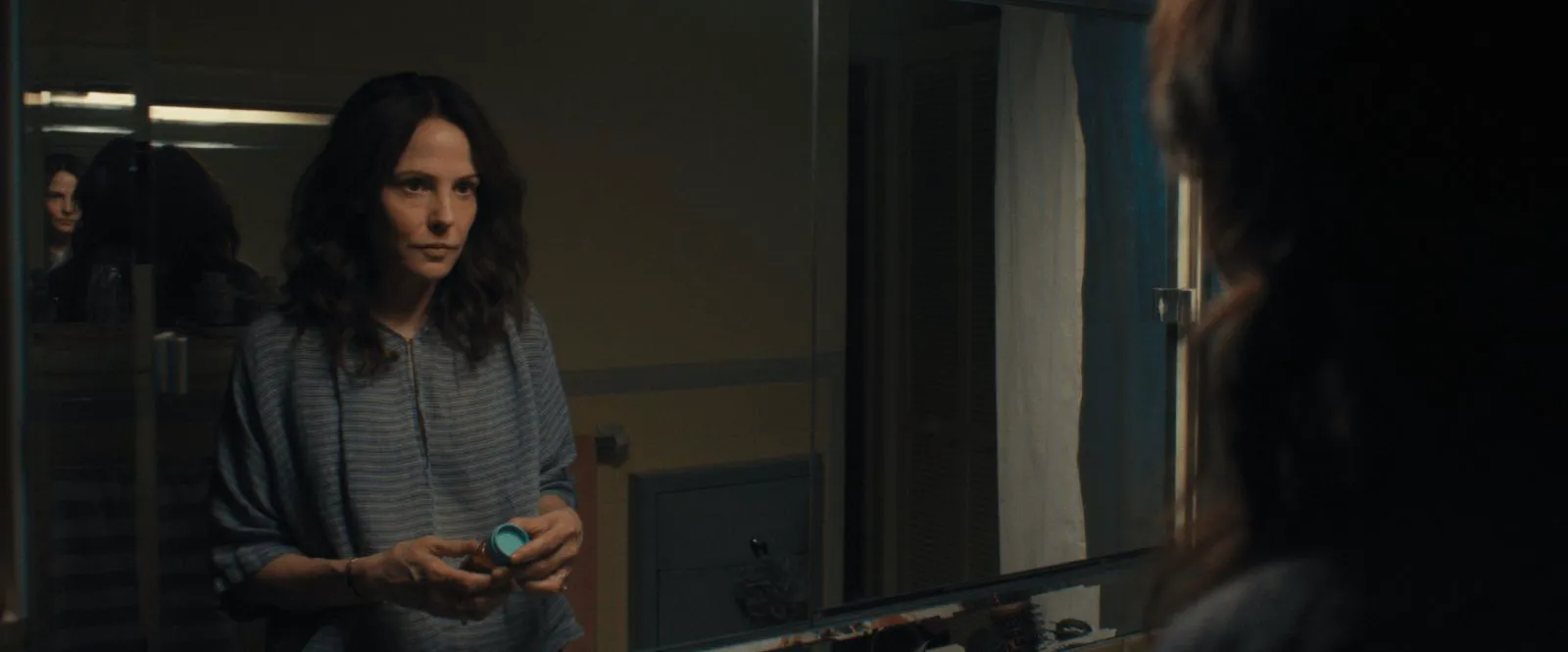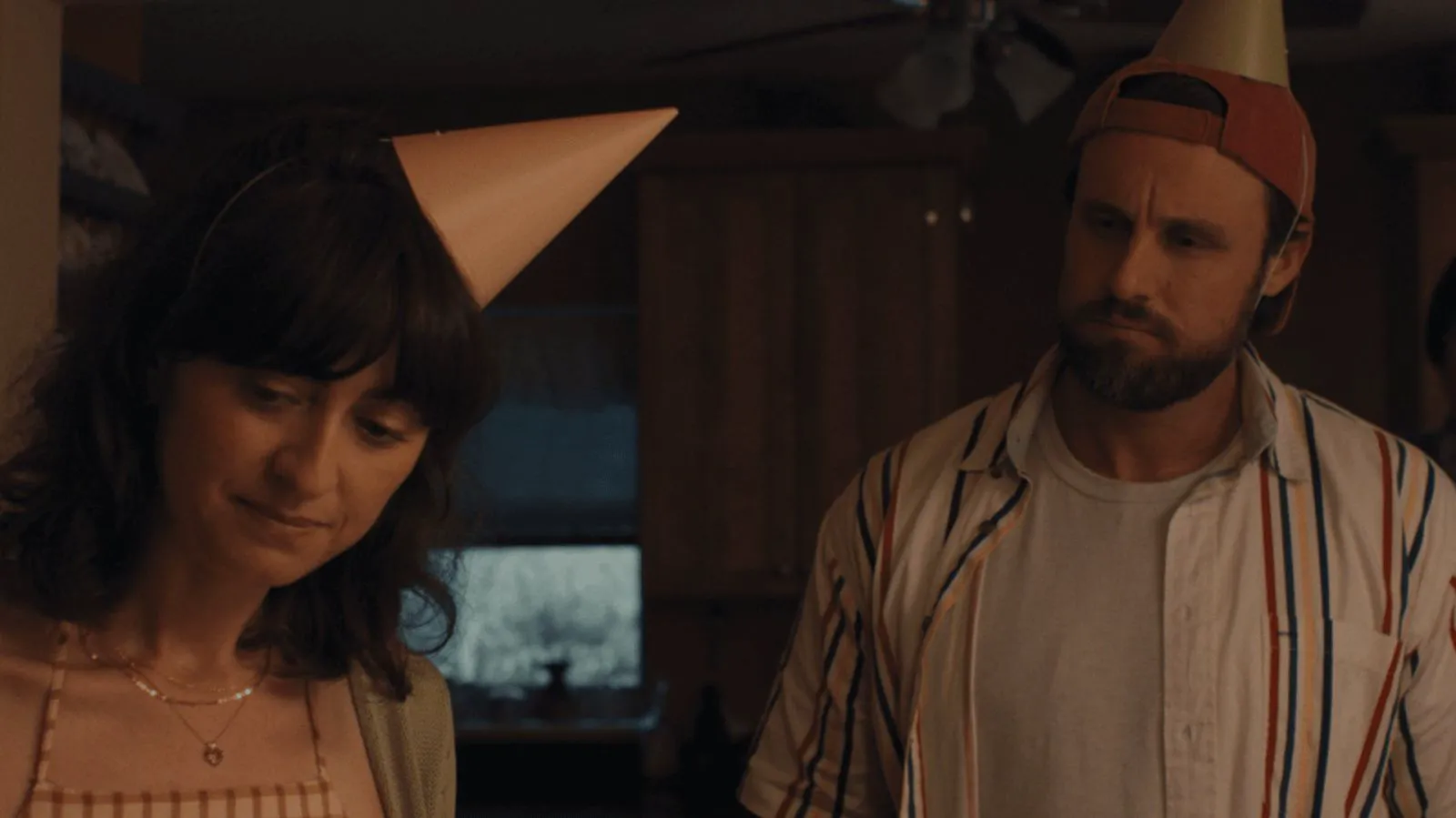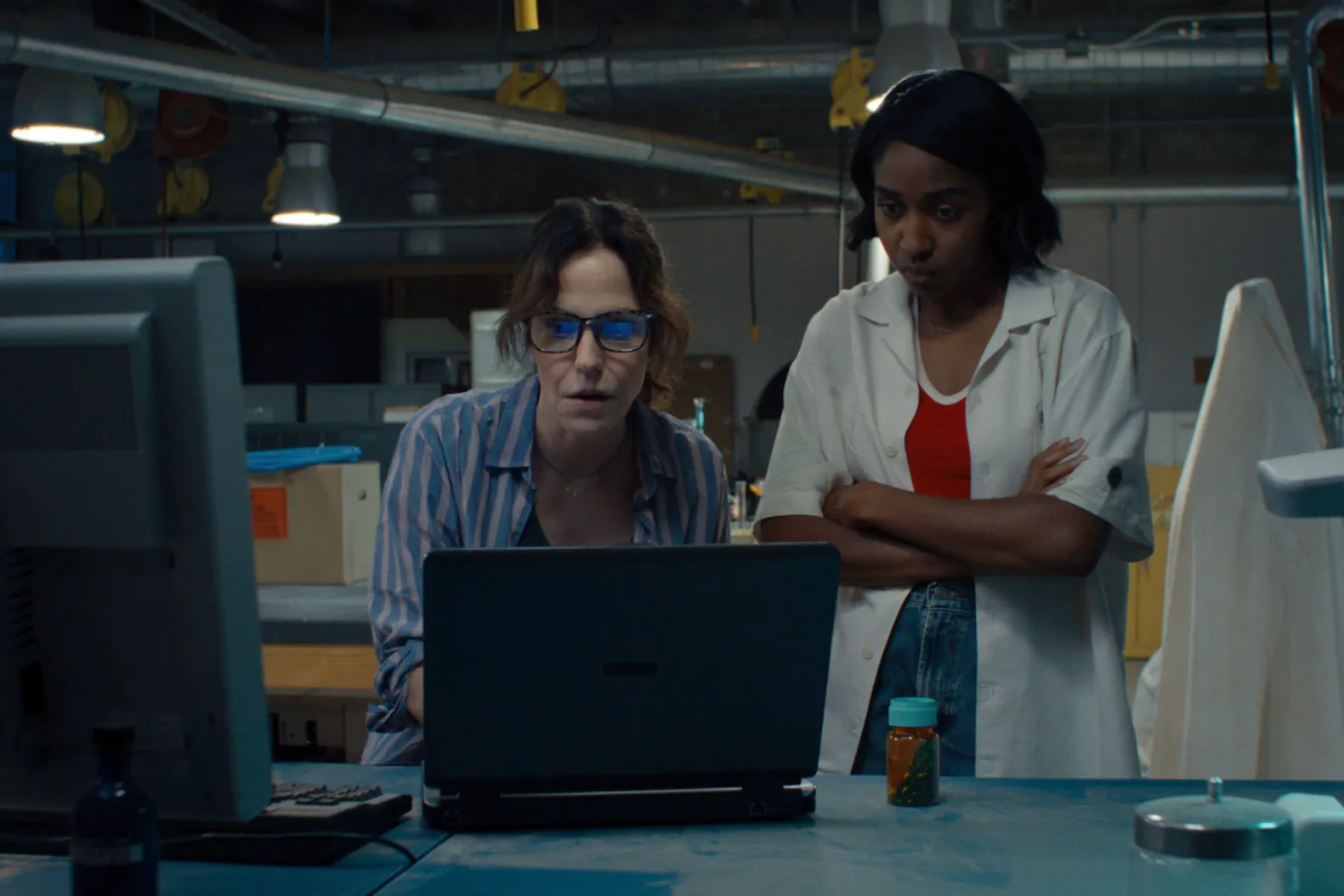Time-Looping Tales: A Review of “Time Cut”
At the tender age of 12, Zoe Lowe (Riley Fincher-Foster) stumbles upon a peculiar find on a golf course: a jar filled with magical pills. Each pill promises a journey back in time, specifically five days into the past. Throughout her life, Zoe utilizes these pills, finding them helpful in various situations. Now, at 55, Zoe Lowe (Mary-Louise Parker), a successful author, receives a devastating diagnosis: a black hole in her lung. She has only five days to live.
Driven by desperation, Zoe uses the pills to relive her final days, from the initial shock of the diagnosis to a somber gathering with her relatives. During one of these loops, she encounters Paula (Ayo Edebiri), a student researching time. Together, they embark on a quest to understand the nature of these magical pills and the time loop they create.

Mary-Louise Parker as Zoe in “Time Cut”
Directed by the Brazilian filmmaker Bernardo Britto, known for “Jacqueline (Argentina)” and “Empathy Teeth”, “Time Cut” premiered at SXSW. The film is particularly appealing due to its lead actresses: Mary-Louise Parker, celebrated for her roles in “Weeds” and “Billions,” and Ayo Edebiri, recognized from “The Bear” and “Bottoms.” Parker delivers a standout performance, while Edebiri, though captivating, remains in a supporting role.
The Familiar Yet Fresh Time Loop Trope
“Groundhog Day” popularized the time loop concept, where characters relive the same day or series of days. These narratives often explore themes of changing past events or personal transformation. With each repetition, the protagonist learns from their actions and evolves.

Chris Viitasak as Morris in “Time Cut”
Britto puts a unique spin on this well-known concept. While films like “Palm Springs” have demonstrated the potential for revitalizing familiar tropes, “Time Cut” distinguishes itself with its singular fantastical element: the time-traveling pills. It’s suggested that Zoe’s frequent use of these pills may have contributed to the black hole in her lung. Each pill transports the user precisely five days into the past, and taking multiple pills has no additional effect.
The Despair of Repetition
Unlike many characters trapped in time loops who yearn for normalcy, Zoe grows weary of reliving the same events. Knowing every moment in advance becomes a torment, draining life of its meaning. Through a montage of identical scenes, the film captures Zoe’s despair. Driven by a fear of death, she and Paula seek to defy fate and control time itself. Despite the seemingly impossible task, they conduct numerous experiments, reminiscent of scientific pioneers hoping for a breakthrough.

Ayo Edebiri as Paula in “Time Cut”
With Zoe’s life on the line, the dramedy maintains a light tone, with Zoe reminding Paula of their progress and future plans in each loop.
Reflecting on a Life Lived in Loops
As Zoe attempts to cheat death, she reflects on her life. Did the time-traveling pills bring her happiness? She achieved academic success but failed to become a quantum physicist. She and her husband, Donald (Carlos Jacott), write popular science books, but the success feels hollow. Zoe’s time-traveling has disconnected her from the present and her daughter, Jane (Hannah Pearl Utt). The ability to relive moments diminishes their uniqueness.
A Message About Embracing the Present
“Time Cut” ultimately delivers a simple message: Zoe’s attempts to alter fate have become an obsession. She fails to live in the moment, and the value of joyful experiences diminishes. Perhaps Zoe should accept the inevitability of time and death and spend her final days with her loved ones. The film suggests that happiness lies in the uniqueness of each moment, urging viewers to cherish the present and abandon the pursuit of time travel.